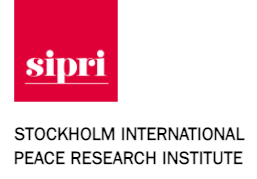Speakers

Aisha Al Sarihi
Research Fellow, National University of Singapore’s Middle East Institute

Muna Dajani
Fellow in Environment, Department of Geography and Environment, London School of Economics (LSE)

Karim Elgendy
Founder, Carboun; Associate Fellow, Environment and Society Centre, Chatham House

Neda Zawahri
Professor, Department of Political Science, Cleveland State University
Moderator

Alaa Tartir
Senior Researcher and the Director of the Middle East and North Africa Programme, Stockholm International Peace Research Institute (SIPRI)
The Middle East and North Africa (MENA) region is among the most vulnerable areas in the world to climate change, with projected rising temperatures, additional drought, and increasing extreme weather events likely to threaten water access, agricultural production, and socioeconomic opportunity. Since 2020, extreme heatwaves have produced temperatures of more than 50 degrees Celsius in Iraq and throughout the Arabian Gulf, floods have devastated Tunisia, Libya, and Iran, and wildfires have gravely impacted Turkey, Lebanon, and Syria. The International Monetary Fund estimates that climate-related disasters have impacted more than seven million MENA residents and have cost the region more than $2 billion in damages.
The  2023 UN Climate Change Conference, COP28, was held in Dubai in November to address the challenges that the changing climate is presenting worldwide. The conference operationalized the Loss and Damage Fund to assist countries with less adaptive capacity in dealing with climate impacts and presented new goals for the protection of biodiversity. However, the Global Stocktake at the conference confirmed that countries are not on track to limit warming to 1.5 degrees Celsius and funding mechanisms for green energy transition plans remain unclear. In the context of COP28 and the specific regional challenges facing the Middle East, Arab Center Washington DC (ACW) and the MENA Programme at Stockholm International Peace Research Institute (SIPRI) are organizing this webinar to discuss the regional impacts of climate change and opportunities for a path forward. The panel will also discuss the compounding challenges of ongoing conflict, humanitarian needs, environmental injustice, and the enduring legacies of colonialism, as well as adaptation and mitigation strategies for the region on the international level.
2023 UN Climate Change Conference, COP28, was held in Dubai in November to address the challenges that the changing climate is presenting worldwide. The conference operationalized the Loss and Damage Fund to assist countries with less adaptive capacity in dealing with climate impacts and presented new goals for the protection of biodiversity. However, the Global Stocktake at the conference confirmed that countries are not on track to limit warming to 1.5 degrees Celsius and funding mechanisms for green energy transition plans remain unclear. In the context of COP28 and the specific regional challenges facing the Middle East, Arab Center Washington DC (ACW) and the MENA Programme at Stockholm International Peace Research Institute (SIPRI) are organizing this webinar to discuss the regional impacts of climate change and opportunities for a path forward. The panel will also discuss the compounding challenges of ongoing conflict, humanitarian needs, environmental injustice, and the enduring legacies of colonialism, as well as adaptation and mitigation strategies for the region on the international level.
Featured image credit: Shutterstock/John Wreford


